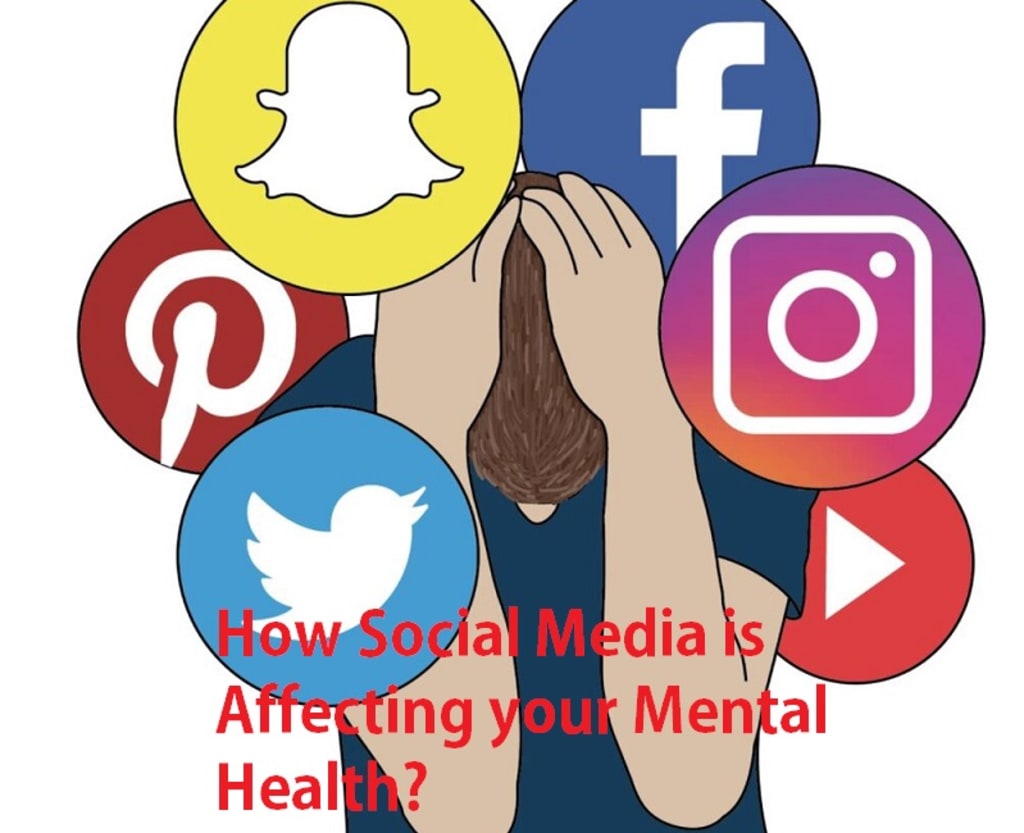What Social Media Is Doing to Your Mental Health
Side Effects Of Social Media

People are engaging and entertaining themselves more through the digital world now that the internet is freely accessible even in remote regions. Social networking is proven to be a huge source of entertainment for people all over the world. However, it has been discovered that it is also one of the leading causes of poor mental health. The rise of social media, in particular, has long-term ramifications and negative affects on people's mental health, such as cyberbullying, depression, and severe anxiety.
People believe that social media can improve their mood, which is accurate to some extent. Excessive socializing can make things strange for you, negatively impacting your mental health. Let us examine how social media affects people's mental health.
1. Comparing our lives with others:
One of the key reasons people feel socially alienated is because of the comparison. As we go through our social media feeds, we begin to compare our lives to those of others. This could be in terms of money, their daily activities, appearance, or happy memories. Unfortunately, comparing ourselves to others has been related to symptoms such as anxiety, despair, and loneliness.
2. It triggers sadness:
The more you use social media, the more it makes you sad. A person who is already coping with mental health challenges, for example, may observe things that make her feel unhappy. People become anxious as a result of the fear of missing out.
3. Low self-esteem:
People on social media are all about flaunting their material possessions. We often feel excluded from these displays, which can lead to increased insecurities. Seeing someone who is 'perfect' on social media decreases one's self-esteem even more. You'll start judging your own worth, which is perilous.
4. Social acceptance:
The desire for 'following' and 'likes' on social media has taken over people's minds. Youth believe that if they do not receive a specific amount of likes or followers, they are not good enough or socially acceptable.
5. Abrupt sleep cycle:
Social media is like that one nasty addiction you wish you could kick but can't. According to studies, nearly two-thirds of young people check social media at least once before going to bed. You may come upon a specific post and opt to read more about it out of interest. You'll lose hours surfing through social media in the blink of an eye.
6. Leads to jealousy:
Aside from comparing oneself to others, social media also has an impact on one's mental health by instilling jealously. Envious of other people's success stories, luxury accessories, and trips. This vicious cycle of envy can have serious consequences.
The emergence of influencer culture has also had a number of negative consequences for today's kids. Unfortunately, poor mental health can have a negative impact on one's physical health. While these health issues may not appear to be serious, they can become serious and have an impact on your overall well-being, productivity, and finances in the future. As a result, it is in your best interest to obtain health insurance so that you do not deplete your financial resources in order to maintain your mental well-being.
Conclusion
Social media is more than just skimming through feeds and seeing what's going on in other people's lives. Social media, when used appropriately, can be an excellent tool for increasing productivity and happiness. You'll find profiles and blogs about how to improve your well-being, practice mindfulness, draw positivity through knowledge, and even the necessity of mental balance, health insurance, and living a healthy lifestyle.
All of this isn't to imply that social media isn't useful; it definitely keeps us linked across enormous distances and helps us find folks we'd lost touch with years ago. However, using social media when you have some free time or, worse, when you need an emotional boost is almost always a bad idea. Furthermore, research have shown that taking a break from Facebook improves psychological well-being. If you're feeling brave, take a break and see how it goes. And if you're going to keep "using," try to do so in moderation.
About the Creator
The Learning Page
The Learning Page is a blog about various online marketing topics including SEO, Social Media, Digital Marketing, Email Marketing and more. The blog also covers some basics Of diamond jewelry and other topics about money.
Enjoyed the story? Support the Creator.
Subscribe for free to receive all their stories in your feed. You could also pledge your support or give them a one-off tip, letting them know you appreciate their work.






Comments
There are no comments for this story
Be the first to respond and start the conversation.